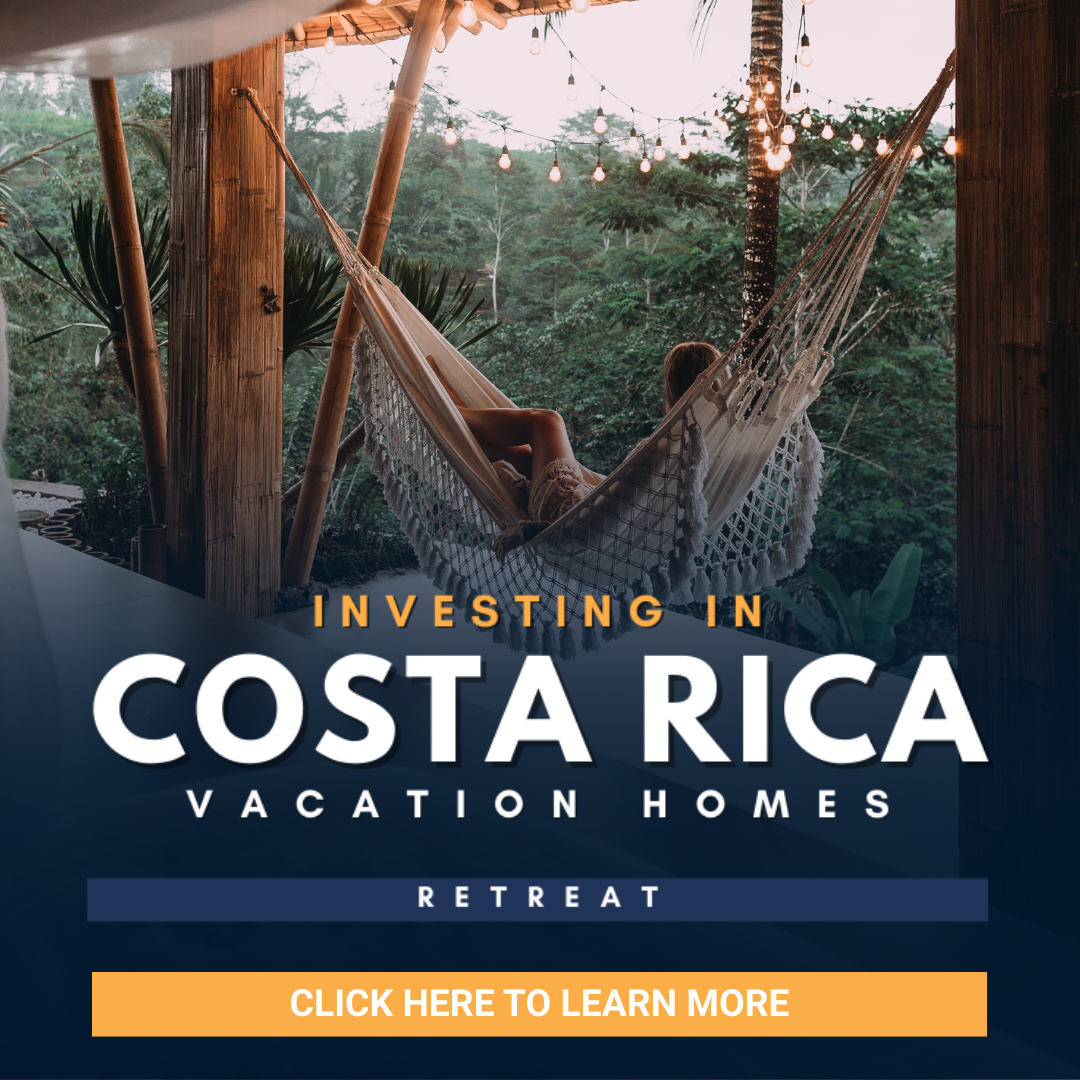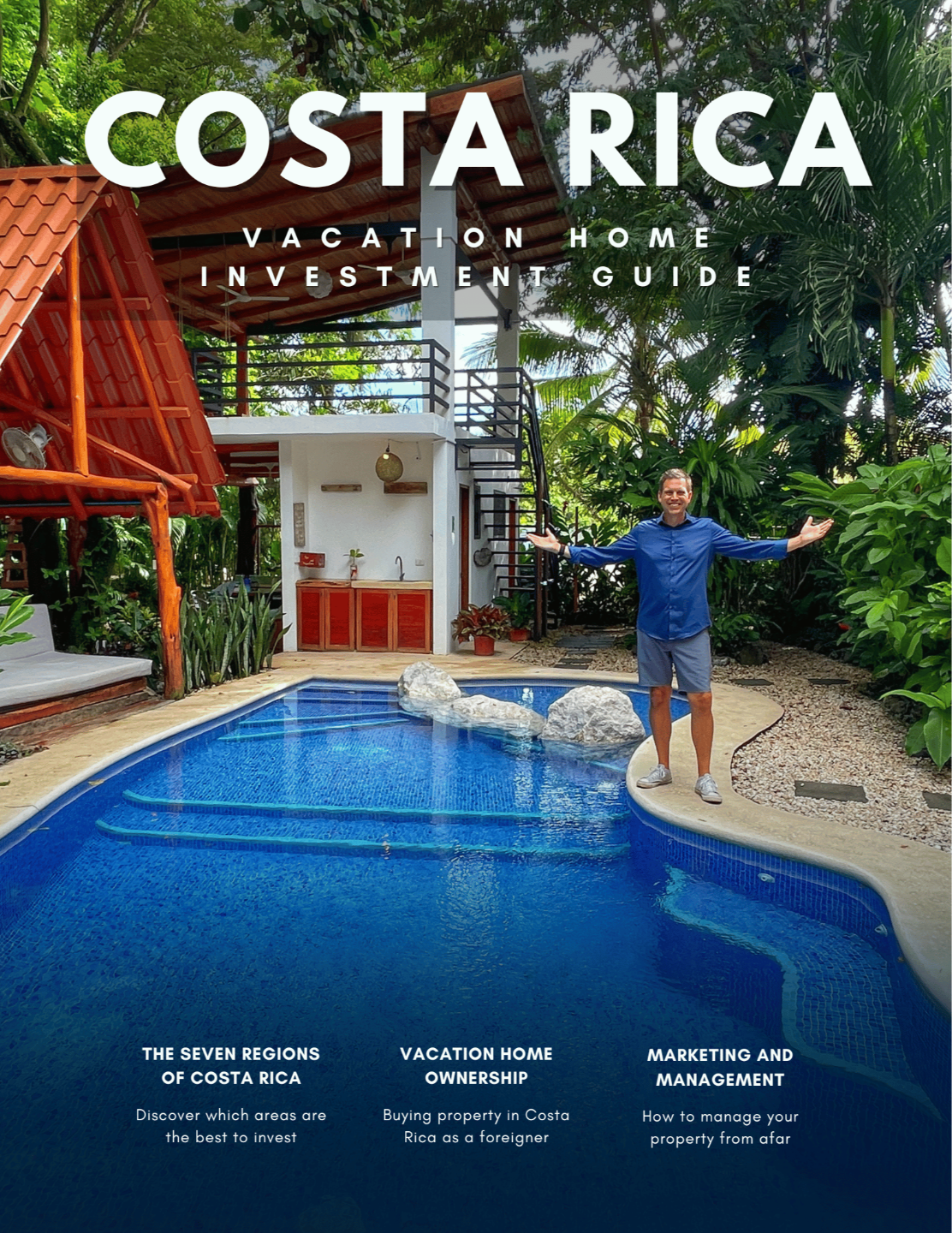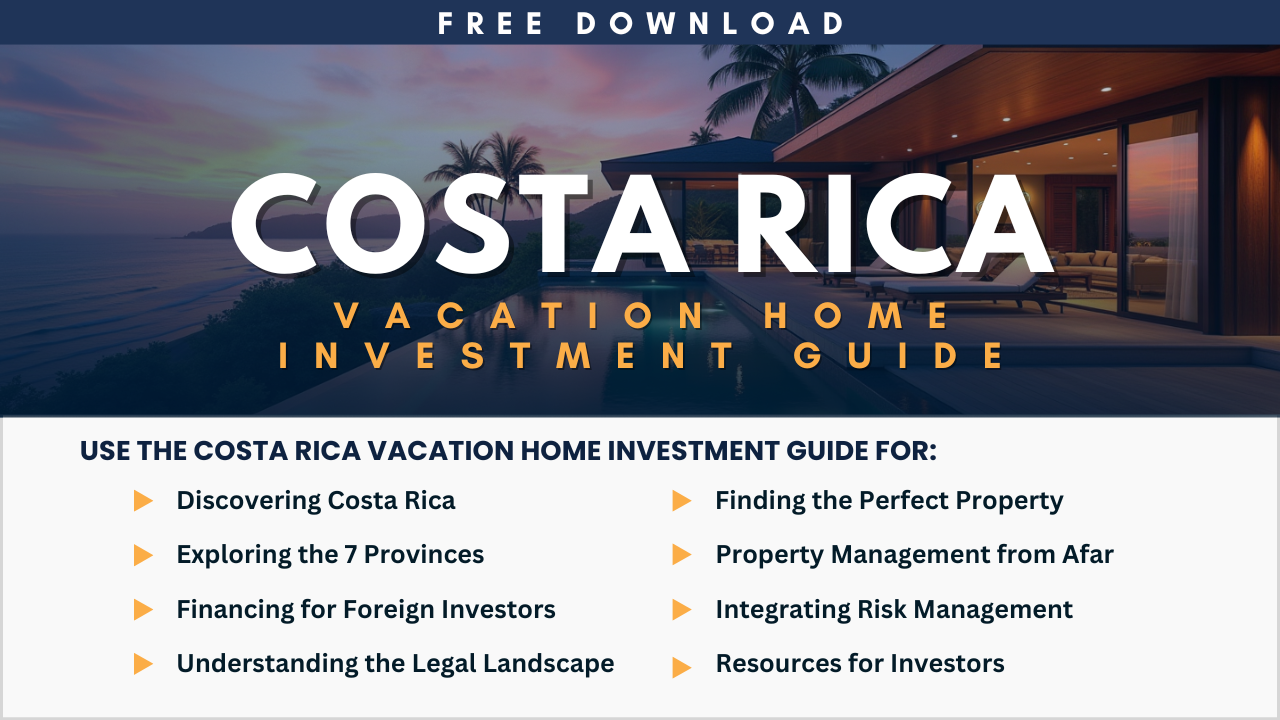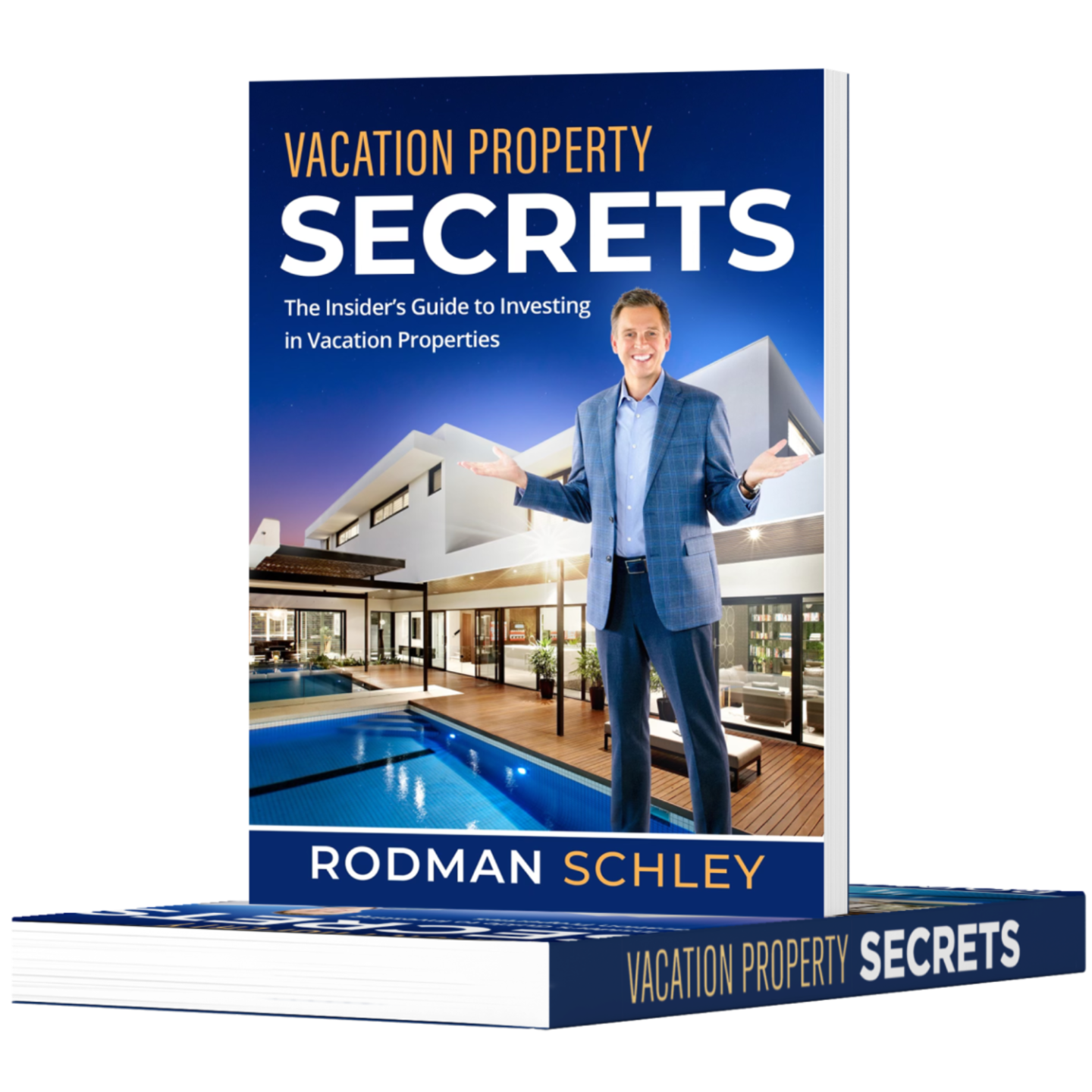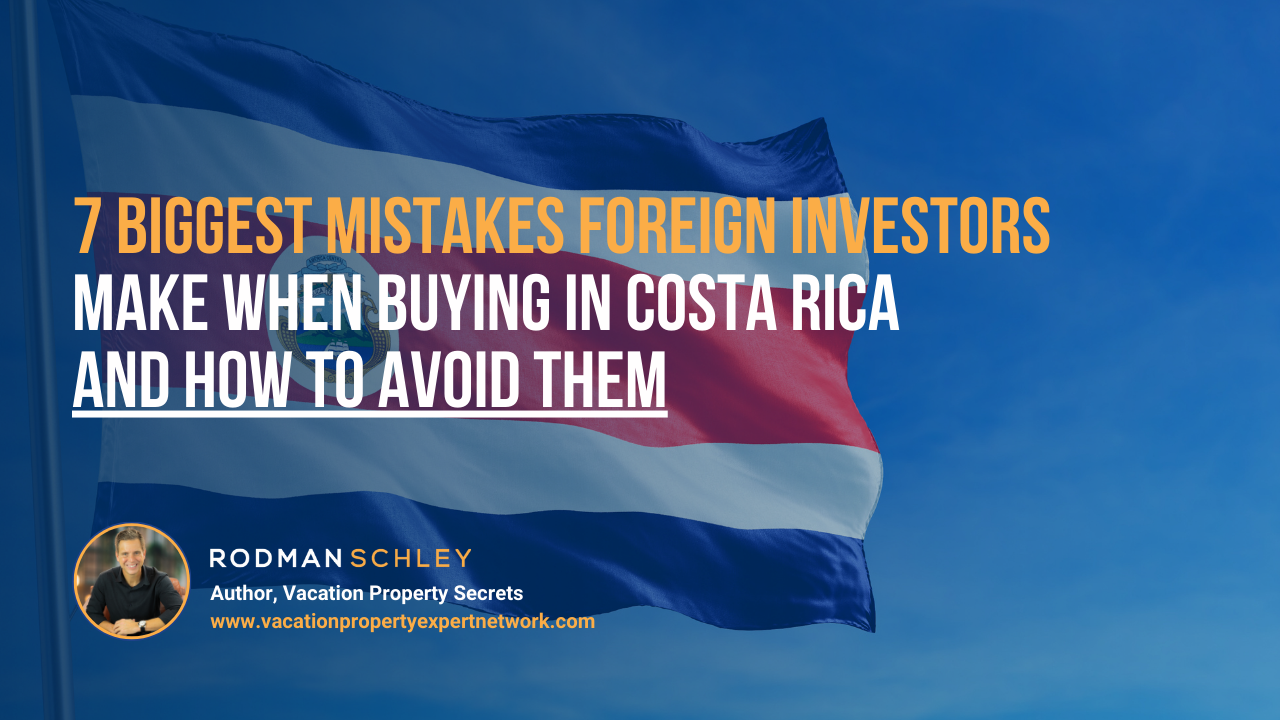
7 Mistakes Foreign Investors Make When Buying in Costa Rica (And How to Avoid Them)
Investing in a vacation home in Costa Rica can be one of the most rewarding decisions you'll ever make—both personally and financially. With stunning beaches, stable property laws, and a booming tourism industry, Costa Rica attracts thousands of foreign investors each year looking to buy their slice of paradise.
But while the opportunity is real, so are the risks—especially if you’re unfamiliar with how real estate works outside your home country.
In this post, we’ll cover the 7 most common mistakes foreign investors make when buying in Costa Rica—and more importantly, how you can avoid them.
1. Not Understanding Property Ownership Laws for Foreigners
One of the biggest misconceptions foreign investors have about Costa Rica is that buying property abroad will be complicated, restricted, or even impossible. But in Costa Rica, the reality is quite the opposite: foreigners have the same legal property ownership rights as Costa Rican citizens. You don’t need to be a resident, and you can legally own property in your name or through a corporation. That’s a major reason why Costa Rica has become a hotspot for international investors looking for vacation homes, income-producing rentals, or second residences.
However, that open-door policy can create a false sense of simplicity. While foreigners can own property, not all properties come with the same legal protections or ownership clarity. Coastal properties, agricultural parcels, and land held within corporations may be subject to different regulations, limitations, and risks. Terms like “concession land,” “maritime zone,” or “undivided interest” may be unfamiliar, but understanding them is critical to protecting your investment.
Skipping this step could mean buying land you can’t legally build on, discovering later that your “ownership” is tied up in a vague share of a company, or facing restrictions that limit the property's use.
The Mistake:
Assuming you can buy any property freely without understanding key legal designations like concession land, maritime zone property, or co-owned shares.
Why It Matters:
Maritime zone laws restrict how and where you can build within 200 meters of the coastline. Some beachfront properties are not privately owned and are governed by concession agreements with the local municipality. Others may be part of a corporation with unclear ownership structures.
How to Avoid It:
-
Work with a qualified Costa Rican real estate attorney before signing anything.
-
Always check for clear title and registered ownership with the National Registry.
-
Be especially cautious with beachfront properties—get clarification on maritime zone restrictions.
2. Skipping Due Diligence on the Title and Land Use
Falling in love with a tropical property is easy—especially in Costa Rica, where stunning ocean views, jungle surroundings, and charming villas can capture your imagination instantly. But in a foreign country, emotion alone should never drive a purchase. In Costa Rica, just because a property looks perfect doesn’t mean it’s legally secure. Proper due diligence is essential, and that includes verifying the property’s title, land use permissions, and zoning with independent professionals—not just trusting what the seller or agent says.
The reality is that not all properties are created equal in the eyes of the law. Some might be fully titled and registered with clean documentation. Others, however, may carry hidden issues like unclear ownership, liens, inheritance disputes, or outdated cadastral maps. Even more problematic: some properties are sold without ever being registered—what’s known locally as informal properties—leaving buyers with no legal protection.
In addition to title clarity, you need to confirm how the land can be used. That means checking the uso de suelo (land use designation) and verifying local zoning ordinances to ensure the property is suitable for your intended use—whether that’s building a vacation rental, constructing a multi-unit property, or preserving it as a long-term land bank investment.
Skipping this step could cost you not just peace of mind—but your entire investment.
The Mistake:
Relying solely on the seller or listing agent to confirm title status, land use permissions (uso de suelo), or zoning laws.
Why It Matters:
Some properties are unregistered or may have lien disputes, inheritance claims, or outdated cadastral plans. Others may be improperly zoned for vacation rentals or construction.
How to Avoid It:
-
Request a title search from your lawyer using Costa Rica’s National Registry (Registro Nacional).
-
Confirm zoning and land use regulations with the local municipality (Municipalidad).
-
Review the cadastral plan (plano catastrado) to ensure the physical property matches the legal lot.
-
Avoid unregistered or “informal” properties no matter how good the deal sounds.
3. Not Setting Up the Right Ownership Structure
In places like the U.S. or Canada, buying property in your personal name is standard practice—and in many cases, it works just fine. But in Costa Rica, taking that same approach can create unnecessary complications, risk exposure, and future headaches. The way you structure your ownership matters—not just for liability and legal protection, but also for taxes, inheritance, and long-term planning.
Many foreign buyers make the mistake of purchasing real estate in their own name simply because it's what they're used to. What they don’t realize is that Costa Rica’s legal and tax systems are different, and foreign-owned property can come with unique obligations. Additionally, owning a property in your personal name can make it harder to pass on to heirs, harder to sell, and more complicated to protect in the event of a dispute.
By setting up the correct ownership structure—usually through a Costa Rican corporation (Sociedad Anónima or S.A.)—you can streamline your investment, reduce legal liability, and create flexibility for future decisions, whether that’s renting out the property, transferring ownership, or bringing on a partner.
This is one of the smartest steps you can take before closing on a deal—and one of the easiest to overlook.
The Mistake:
Buying real estate in your personal name rather than using a legal entity, like a Costa Rican corporation (Sociedad Anónima).
Why It Matters:
Owning through a corporation can provide liability protection, inheritance planning advantages, and often simplifies future resale or partnership arrangements.
How to Avoid It:
-
Consult with a Costa Rican attorney to determine the best ownership structure based on your goals (personal use, rental income, legacy planning, etc.).
-
Set up your corporation before the purchase so the deed goes directly into the entity’s name.
-
Understand the tax and reporting requirements for foreign-owned corporations.
4. Overestimating Rental Income Without Doing Market Research
The Costa Rica rental market can be incredibly lucrative—but it’s not automatic.
The Mistake:
Assuming high occupancy and income just because a property is near the beach or “in a tourist town.”
Why It Matters:
Rental income in Costa Rica varies significantly by location, seasonality, and even property type. Some areas are saturated with short-term rentals. Others see heavy demand but lack the infrastructure for high-end travelers.
How to Avoid It:
-
Use tools like AirDNA, VRBO, and Booking.com to analyze occupancy rates and average daily rates (ADR) in the exact area you're considering.
-
Talk to local property managers and ask for historical rental data.
-
Build a realistic pro forma with conservative income estimates, expenses, and maintenance.
5. Failing to Account for Ongoing Costs and Taxes
It’s easy to assume that if a property is near the beach in Costa Rica—or located in a town you’ve seen trending on Instagram—it will be a cash-flow machine. After all, Costa Rica has become a global hotspot for tourism, wellness retreats, and digital nomads. But while the potential for strong rental income exists, it’s not guaranteed. Too many investors make the mistake of buying based on emotion or assumptions without taking the time to study the actual rental market.
The truth is, not all tourist towns perform equally, and even two properties in the same zip code can yield very different results depending on factors like accessibility, amenities, competition, and seasonality. Some areas may look like goldmines on paper but are oversaturated with short-term rentals, driving down occupancy and rates. Others might attract steady demand, but lack the infrastructure—like paved roads, high-speed internet, or reliable property managers—to support high-end guests or consistent turnover.
To succeed as a vacation rental investor in Costa Rica, you need more than a beautiful home in a great location—you need real data, a solid rental strategy, and a clear understanding of how that specific market performs throughout the year.
The Mistake:
Not budgeting for annual property taxes, utilities, maintenance, insurance, HOA fees, or management costs.
Why It Matters:
If you're not living in Costa Rica full-time, you'll need to hire a property manager, gardener, or maintenance crew. You may also owe luxury home taxes (Impuesto Solidario) if your home is valued above a certain threshold.
How to Avoid It:
-
Include all annual and monthly costs in your ROI analysis before you buy.
-
Confirm whether the property is in a condominium community (condominio) with HOA dues.
-
Hire a local accountant to help you understand your tax obligations, especially if you're earning rental income.
6. Choosing the Wrong Location Based on Hype Instead of Fit
There’s no shortage of buzz around Costa Rica’s most famous beach towns. Scroll through social media and you’ll see dreamy drone shots of surfers in Santa Teresa, yoga retreats in Nosara, and luxury villas in Tamarindo. These places have earned their popularity for good reason—but that doesn’t mean they’re the right fit for every investor. One of the most common (and costly) mistakes buyers make is purchasing based on hype, not strategy.
Just because a location is trendy doesn’t mean it aligns with your goals. A surf-centric town might be perfect for a barefoot backpacker or digital nomad, but it may not attract the family vacationers or luxury guests you want to host. Similarly, some towns see seasonal booms but fall flat the rest of the year. Others may look idyllic online but lack basic infrastructure like reliable roads, water, or Wi-Fi—all of which can impact your rental income, guest reviews, and resale value.
Smart investors understand that the best location isn’t just popular—it’s purposeful. It matches the lifestyle you want, the guest you’re targeting, and the returns you’re hoping to achi
The Mistake:
Buying in a trendy area based on social media buzz, influencer posts, or assumptions—without visiting and understanding the area firsthand.
Why It Matters:
Some towns are ideal for surf retreats and backpackers, while others cater to families, retirees, or high-end travelers. Buying based on hype can lead to buyer’s remorse—or lower-than-expected returns.
How to Avoid It:
-
Visit multiple towns and stay at different beaches before buying.
-
Consider your target guest, not just your personal preferences.
-
Ask: Does this location align with your long-term investment goals (income, appreciation, lifestyle, exit strategy)?
-
Consider access: Is there a nearby airport? Are roads paved? Is there strong internet?
7. Going It Alone Without Building a Local Team
Buying property in another country—especially one with a different language, legal system, and business culture—requires more than a good eye and a calculator. Yet many foreign investors make the critical mistake of trying to go it alone. They browse listings online, message a few agents, and assume they can navigate the transaction like they would back home. But Costa Rica isn’t just a different market—it’s a different system. And without a trusted local team, you’re taking unnecessary risks with your time, money, and peace of mind.
From understanding title laws to verifying zoning, negotiating contracts, setting up corporations, and managing a property post-purchase, each step comes with unique local nuances. A casual handshake or verbal agreement might feel friendly—but in Costa Rica, it’s the paperwork and process that protect you. Without professionals guiding you through those details, it’s far too easy to overlook a critical issue, misinterpret regulations, or unknowingly agree to unfavorable terms.
The good news? Costa Rica has a growing network of experienced attorneys, agents, property managers, and advisors who specialize in working with foreign investors. The key is knowing how to find the right ones—and making them part of your team before you close the deal.
The Mistake:
Trying to handle the deal without assembling a trusted team of professionals.
Why It Matters:
Costa Rica's legal and real estate systems are very different from what most North American or European buyers are used to. Without expert guidance, it’s easy to miss red flags—or waste time and money.
How to Avoid It:
-
Build a team that includes:
-
A real estate attorney (not just a notary)
-
A buyer’s agent who represents your interests
-
A local architect or contractor (for land or renovations)
-
A property manager or concierge (for rental setups)
-
An accountant or tax advisor familiar with foreign investor rules
-
-
Vet each team member with references and reviews. The right team is worth its weight in gold—and will protect your investment from day one.
Final Thoughts: Invest with Clarity, Not Fear
Buying a vacation home in Costa Rica is an exciting opportunity—but like any smart investment, it requires preparation. By avoiding these 7 common mistakes, you can protect your capital, accelerate your returns, and enjoy all the reasons you wanted to invest in Costa Rica in the first place: freedom, beauty, and long-term wealth.
The good news? You don’t have to figure it all out alone.
Want Help Making a Smart Investment in Costa Rica?
I’ve taught hundreds of investors how to buy vacation homes in Costa Rica with confidence—based on fundamentals, not emotion. If you want a step-by-step roadmap and support from people who’ve done it before…
👉 Join the VIP Waitlist for the Investing in Costa Rica Vacation Homes Class
You’ll get:
-
Early access
-
A full blueprint for choosing, analyzing, and managing the right property in the right location
Don’t make the mistakes so many others do. Learn the proven system and build your Costa Rica portfolio the smart way.




